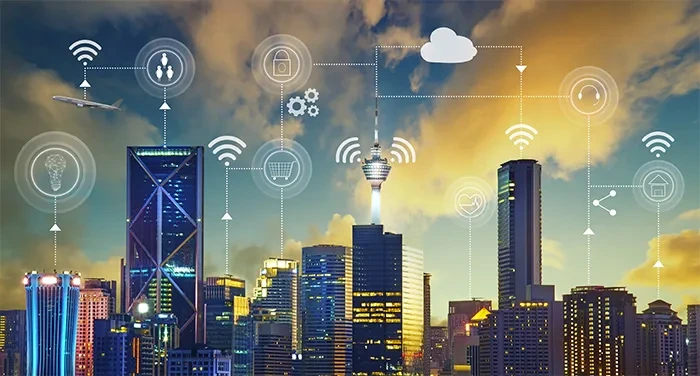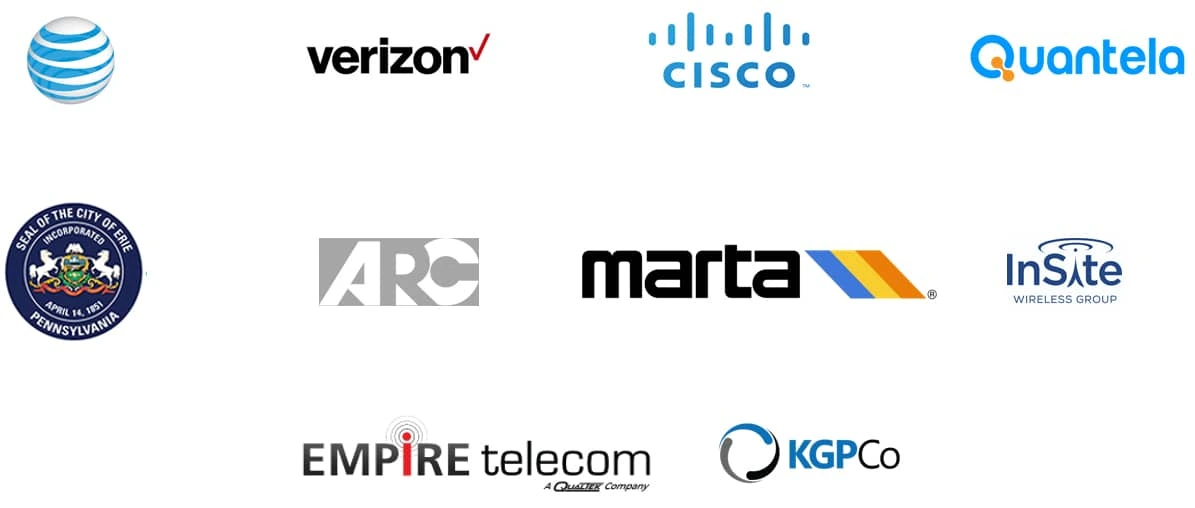Smart City Services
Digital solutions for more livable communities
Smart cities add digital intelligence to existing urban systems, making it possible to do more with less. Connected applications put real-time, transparent information into the hands of users to help them make better choices. These tools can save lives, prevent crime, and reduce the disease burden. They can save time, reduce waste, and even help boost social connectedness. When cities function more efficiently, they also become more productive places to do business.
Smart cities use data and technology to make better decisions for a more efficient, responsive, and sustainable communities. “Smartness” is not just installing digital interfaces in traditional infrastructure or streamlining city operations. It is about using technology and data purposefully to make better decisions and deliver a better quality of life. Digital intelligence gives cities a set of tools for doing more with less.
Smart cities put data and digital technology to work with the goal of improving the quality of life. More comprehensive, real-time data gives agencies the ability to watch events as they unfold, understand how demand patterns are changing, and respond with faster and lower-cost solutions.
Three layers work together to make a smart city hum. First is the technology base, which includes a critical mass of smartphones and other sensors connected by high-speed communication networks, as well as open data portals. Sensors take constant readings of variables such as traffic flow, energy consumption, air quality, and many other aspects of daily life and put information at the fingertips of those who need it.
The second layer consists of specific applications. Translating raw data into alerts, insight, and action requires the right tools, and this is where technology providers and app developers come in. Perhaps the best way to grasp what a smart city can be is to look at the full sweep of currently available applications. Tools are available in multiple domains: security, mobility, health, energy, water, waste, economic development and housing, and engagement and community.
The third layer is public usage. Many applications succeed only if they are widely adopted and manage to change behaviors. A number of them put individual users into the driver’s seat by giving them more transparent information they can use to make better choices.
Conure, with its experience and expertise in the ICT industry, enables cities’ digital transformation across different governance domains. Each governance domain requires specific technology layer underneath the governance processes to enable right real-time operational information and actionable intelligence at user’s fingertips. Conure helps cities stitch together different technology layers on to a unified platform connected to cities infrastructure for better visibility within and across domains.
Smart cities integrate technologies, systems, infrastructures services, and capabilities into an organic network that is sufficiently complex for unexpected emergent properties to develop. Integrative service of smart city faces challenges as well as opportunities. The perception of technology in smart city initiatives stresses integration of systems, infrastructures and services mediated through enabling technologies.

Parking
Generate revenue with demand-based parking while reducing the search time for citizens.
Urban Mobility
View pedestrian conditions to gain insight on how to improve people and traffic management.
Safety & Security
Accurately detect incidents and protect against crime through digital monitoring.
City Lighting
Lower energy consumption, cut costs, and simplify maintenance.
Waste Management
Manage, collect, and track waste bins to avoid overflow and health hazards.
Environment
Protect lives and infrastructure from environmental damage through hyperlocalized monitoring and predictive modeling.
Want to know more?
OUR CLIENTS
Here are a few of our clients we have worked with so far

